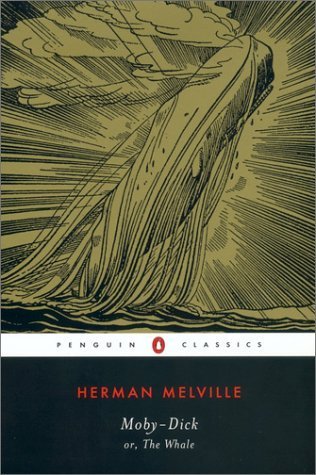Title: A Whirlwind Journey into the Abyss: "Moby-Dick or, The Whale" by Herman Melville
Herman Melville's "Moby-Dick" is a literary behemoth that plunges readers into the heart of an epic whaling voyage, intertwining adventure, philosophy, and symbolism. Published in 1851, this novel has become a classic of American literature, known for its rich prose, profound insights, and its exploration of the human spirit against the vast backdrop of the ocean.
At its core, "Moby-Dick" is a tale of obsession and revenge. The narrative follows Ishmael, the lone survivor of the whaling ship Pequod, as he recounts the harrowing journey led by the monomaniacal Captain Ahab. Ahab's relentless pursuit of the elusive white whale, Moby Dick, becomes a metaphorical quest that delves into the depths of human ambition, vengeance, and the struggle against the forces of nature.
Melville's prose is both eloquent and dense, showcasing his mastery of language and his ability to create vivid and atmospheric scenes. The novel's structure incorporates various genres, including adventure, drama, and encyclopedic detail on whaling practices, making it a multi-layered work that rewards readers with a broad spectrum of experiences.
The character of Captain Ahab stands as one of literature's most compelling and enigmatic figures. His monologues on the nature of existence, fate, and the inscrutable sea add a philosophical dimension to the narrative. Ahab's descent into madness and his singular focus on revenge against Moby Dick make him a tragic and larger-than-life figure, symbolizing the timeless struggle of man against the forces of the unknown.
The novel's exploration of the symbiotic relationship between man and nature, particularly the vastness of the ocean, is a recurring theme. Melville's descriptions of the sea evoke a sense of both awe and terror, emphasizing the unpredictable and uncontrollable nature of the deep. The whale itself becomes a symbol of nature's power and the inherent mystery that lies beneath the surface.
While the novel's philosophical and allegorical elements contribute to its depth, some readers may find the detailed digressions into whaling practices and marine biology to be a challenging aspect of the narrative. Melville's penchant for incorporating encyclopedic information may be a hurdle for those seeking a more straightforward adventure story.
In conclusion, "Moby-Dick" is a literary voyage that transcends its seafaring setting, delving into the profound complexities of human nature and the cosmic mysteries of existence. Herman Melville's exploration of obsession, revenge, and the indomitable power of the sea makes this novel a timeless and challenging read. While its dense prose and encyclopedic details may pose difficulties for some readers, the novel's philosophical depth and poetic beauty continue to captivate those willing to embark on this literary odyssey.

Comments
Post a Comment